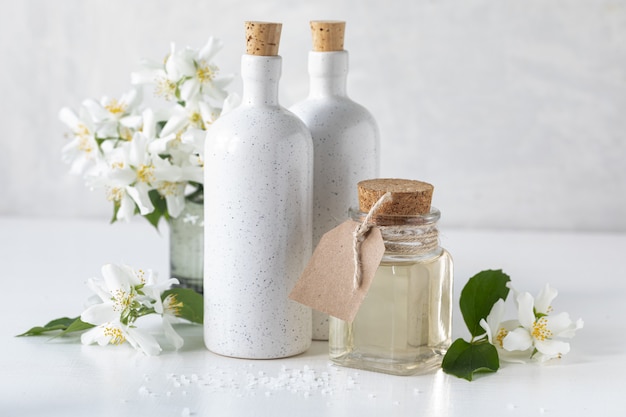
The origins of aromatherapy trace back to ancient times when plants and herbs were used for health, cooking, and beauty. Aromatherapy, also known as essential oil therapy, involves using natural plant extracts to promote health and well-being.
Due to its growing popularity and numerous benefits, the global aromatherapy market is projected to grow by 11.8% from 2020 to 2029. Many people are curious about what essential oils are and how they can be beneficial. Fortunately, there are various types of essential oils, each offering unique therapeutic benefits, making them a great addition to your skincare, haircare, and wellness routine.
Here are five of the most commonly used aromatherapy essential oils that you might find particularly useful:
**1. Lavender Oil:**
Lavender oil is hugely popular in aromatherapy for its calming scent, which helps with relaxation and sleep. If you struggle with insomnia, try putting a few drops of lavender oil on your bedding or use a lavender room spray to help you unwind and get a good night’s sleep. Lavender is considered a versatile oil with anti-inflammatory, antidepressant, and antibacterial properties that can help treat conditions like anxiety, depression, and eczema. Additionally, it’s used in cooking to enhance citrus flavors and other savory dishes. Interestingly, it takes about 25 pounds of lavender to produce a 15 ml bottle of lavender oil.
**2. Bergamot Oil:**
Bergamot oil is extracted from the peel of citrus fruits grown on bergamot orange trees. It is commonly used to boost mood and relieve stress. The oil contains linalool and carvacrol, compounds that help reduce pain and inflammation. Besides its therapeutic uses, bergamot oil can also be found in cosmetic products like perfumes, lotions, and shampoos. You can add a few drops to your shampoo to soften your hair and treat scalp irritation, but it’s always a good idea to test for allergies first. If you enjoy Earl Grey tea, you’ll recognize the bergamot flavor.
**3. Peppermint Oil:**
Peppermint oil comes from the leaves of the peppermint plant and has a sharp, cool scent. It’s particularly effective for treating digestive issues like irritable bowel syndrome (IBS) and abdominal pain, as well as reducing migraines and headaches due to its menthol and menthone content. Peppermint oil is also known for boosting energy—just apply a few drops to your palms and inhale deeply to feel more alert.
**4. Chamomile Oil:**
Chamomile oil is derived from chamomile flowers, which are related to daisies, and comes in two varieties: Roman and German. The active ingredient, chamazulene, is more concentrated in German chamomile. Chamomile oil is known for its calming effects and can help treat anxiety and depression. It also has analgesic properties that alleviate pain in muscles and joints. Additionally, chamomile oil can reduce skin inflammation and redness, making it a good natural remedy for acne and suitable for sensitive skin.
**5. Ylang-Ylang Oil:**
Ylang-ylang oil is extracted from the flowers of the ylang-ylang plant and has a rich, fruity, and floral aroma. It is a key ingredient in the famous Chanel No.5 perfume. This oil is known for its mood-enhancing, sedative, and antidepressant properties. You can rub a few drops on the back of your neck to relieve stress, add it to your bath, or apply it to your wrists to combat fatigue and uplift your mood. Ylang-ylang oil also has antiseptic and anti-inflammatory properties, making it beneficial for treating various skin conditions like acne. Moreover, it supports cardiovascular health by improving circulation and lowering blood pressure.
These are just a few of the many essential oils that provide various health benefits. They can be used in multiple ways, such as inhaling them through a diffuser or humidifier or applying them directly to your skin. Essential oils can enhance your home’s ambiance with their delightful scents and relaxing effects. Just make sure to research each oil thoroughly and choose the ones that best meet your needs.